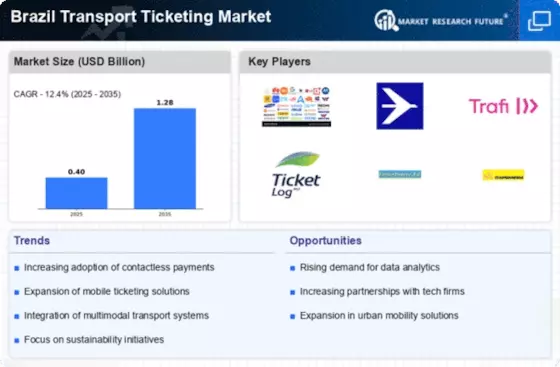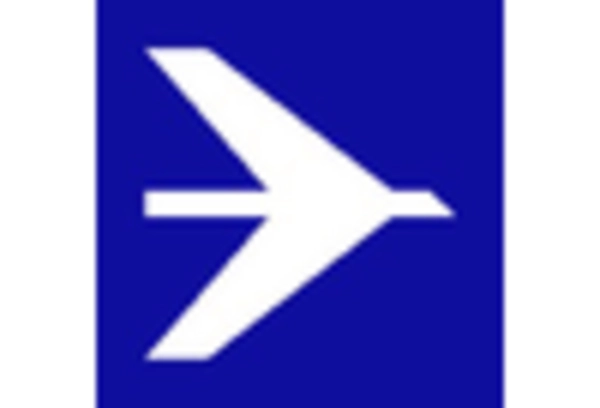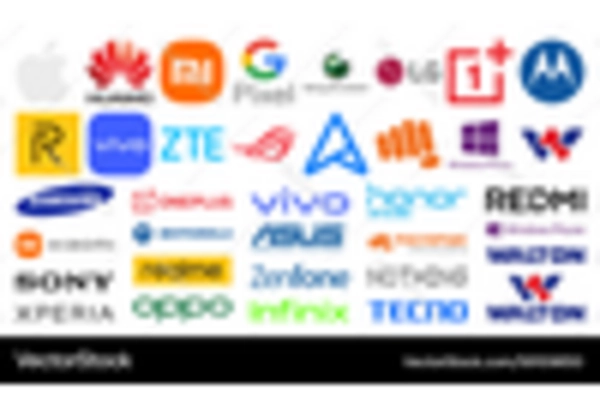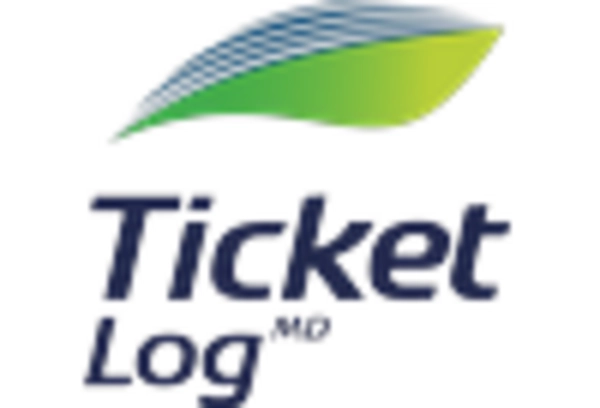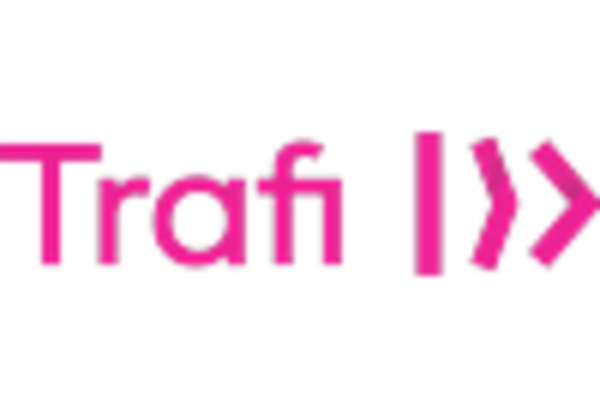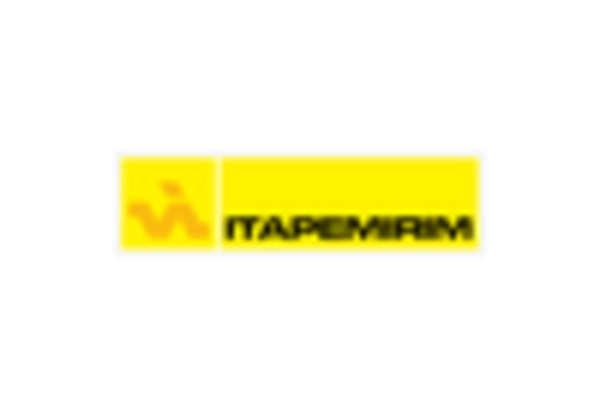Growing Urbanization
The rapid urbanization in Brazil is a pivotal driver for the Brazil Transport Ticketing Market. As cities expand, the demand for efficient public transport systems increases, necessitating advanced ticketing solutions. According to recent data, over 85% of Brazil's population resides in urban areas, leading to heightened pressure on public transport infrastructure. This urban growth compels local governments to invest in modern ticketing systems that streamline operations and enhance user experience. Consequently, the Brazil Transport Ticketing Market is likely to witness a surge in demand for integrated ticketing solutions that cater to diverse urban mobility needs, including buses, metros, and trams. The integration of technology in ticketing processes not only improves operational efficiency but also fosters greater accessibility for commuters, thereby driving market growth.
Technological Advancements
Technological advancements play a crucial role in shaping the Brazil Transport Ticketing Market. The proliferation of mobile applications and contactless payment systems has transformed how passengers interact with public transport services. Recent statistics indicate that mobile ticketing solutions have gained traction, with a significant percentage of users opting for digital platforms over traditional paper tickets. This shift towards technology-driven solutions is indicative of a broader trend towards modernization in the transport sector. Furthermore, the Brazilian government has been actively promoting the adoption of smart ticketing systems, which facilitate seamless travel across various modes of transport. As technology continues to evolve, the Brazil Transport Ticketing Market is poised for further innovation, potentially leading to enhanced user experiences and operational efficiencies.
Rising Commuter Expectations
Rising commuter expectations are reshaping the Brazil Transport Ticketing Market. As urban populations grow, commuters increasingly demand more efficient, user-friendly, and reliable transport services. This shift in consumer behavior is prompting transport operators to enhance their ticketing systems to meet these expectations. Recent surveys indicate that a majority of commuters prioritize convenience and speed when using public transport, which directly influences their choice of ticketing solutions. In response, transport authorities are investing in advanced ticketing technologies that offer features such as real-time updates, mobile ticketing, and multi-modal integration. The emphasis on improving the commuter experience is likely to drive innovation within the Brazil Transport Ticketing Market, as stakeholders strive to create solutions that align with the evolving needs of passengers.
Increased Focus on Sustainability
The increased focus on sustainability is a significant driver for the Brazil Transport Ticketing Market. As environmental concerns gain prominence, there is a growing demand for eco-friendly transport solutions. The Brazilian government has recognized the importance of sustainable urban mobility and is encouraging the adoption of green transport initiatives. This includes the promotion of electric buses and other low-emission vehicles, which necessitate the implementation of efficient ticketing systems. The integration of sustainability into transport planning not only addresses environmental challenges but also enhances the overall appeal of public transport. Consequently, the Brazil Transport Ticketing Market is likely to experience growth as stakeholders seek to develop ticketing solutions that support sustainable transport practices, thereby attracting environmentally conscious commuters.
Government Initiatives and Policies
Government initiatives and policies are instrumental in driving the Brazil Transport Ticketing Market. The Brazilian government has implemented various programs aimed at modernizing public transport systems, which include the introduction of integrated ticketing solutions. For instance, the National Urban Mobility Policy encourages cities to adopt innovative transport solutions that enhance accessibility and efficiency. This policy framework not only supports the development of smart ticketing systems but also promotes sustainable transport practices. As a result, municipalities are increasingly investing in advanced ticketing technologies that align with national objectives. The alignment of government policies with market needs is likely to propel the Brazil Transport Ticketing Market forward, fostering an environment conducive to growth and innovation.

